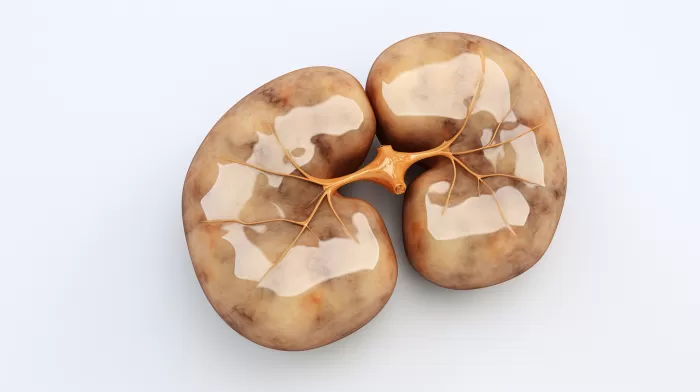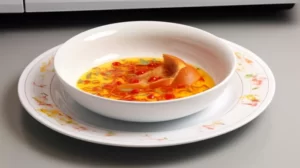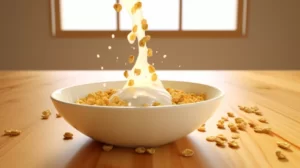Your kidneys are your lifeline – by cleaning your blood, they play a critical role in your overall health. Yet, many people only become aware of their kidneys when they experience the pain of kidney stones. Let’s explore kidney stones, their diagnosis, prevention, and treatments, so you can maintain your kidney health without learning the hard way.
Nephrolithiasis: Kidney Stones
Nearly 9% of Americans experience kidney stones at some point in their lives. They are more common in men, individuals with obesity, and those consuming diets high in animal protein and processed foods.
Kidney stones usually pass on their own, but the journey can be excruciatingly painful. Pain from passing a kidney stone can range from the kidney region to the bladder and even the urethra. Stones large enough to block the flow of urine may be diagnosed using blood tests and a CT scan.
Act Fast When Kidneys Act Up
If you suspect you have a kidney stone, see your doctor or visit an emergency room for proper diagnosis and pain relief. You may receive intravenous fluids to help the stone pass, and, if necessary, doctors may use a procedure called lithotripsy to break up larger stones.
Those with recurring kidney stones should have their doctors check for contributing conditions such as familial hypercalciuria, cystic kidney disease, hyperparathyroidism, or gout. Doctors also recommend eliminating medications that increase calcium or stone components in the urine.
Naturally Dissolve Small Kidney Stones
For less severe cases, natural diuretic teas may help pass kidney stones. Teas like dandelion root, burdock root, uva ursi, and parsley are believed to help dissolve stones. Alkaline-forming foods such as fresh lemonade, limeade, and orange juice also contain citric acid that may help flush out kidney stones.
Apple cider vinegar is a helpful remedy, too – try diluting 2 tablespoons in a cup of water twice a day.
Stone Prevention
Preventing kidney stones begins with recognizing dietary and lifestyle risk factors and adjusting habits accordingly. To reduce your risk of kidney stones, hydrate frequently and cut back on animal protein, table salt, refined sugar, and high-phosphorus foods.
Though 80% of kidney stones are composed of calcium oxalate, recent studies have shown that dietary intake of oxalate-rich foods like leafy greens, rhubarb, soy products, and chocolate has less influence on stone formation than protein, calcium, and water intake.
The Power of Calcium
Calcium supplementation may lower the risk of kidney stones by up to 25%. Aim for 1,000-1,200 mg of calcium daily, typically found in dairy and non-dairy sources. Increase your intake of alkalizing vegetables, which counteract the acid load produced by animal proteins. Citrus fruits like lemonade, limeade, and orange juice are great choices, too.
For uric acid stones, alkalinize your urine with over-the-counter supplements like sodium bicarbonate, potassium citrate, or magnesium citrate. Prescription acetazolamide may also help. Optimal urine pH is around 6.5 – too high and you risk developing calcium phosphate stones.
Additional Medications
Allopurinol can lower urinary uric acid and, in turn, help prevent uric acid stone formation. Your doctor may recommend keeping your serum uric acid level below 6 mg/100 ml.
Thiazide diuretics, like hydrochlorothiazide, chlorthalidone, and indapamide, lower urinary calcium excretion, which can also help prevent kidney stones.
Taking steps to understand kidney stone diagnosis, prevention, and treatment options are key to maintaining your kidney health and avoiding the pain of passing a stone. So, be mindful of your habits, heed preventive measures, and maintain a healthy, kidney-friendly diet.



